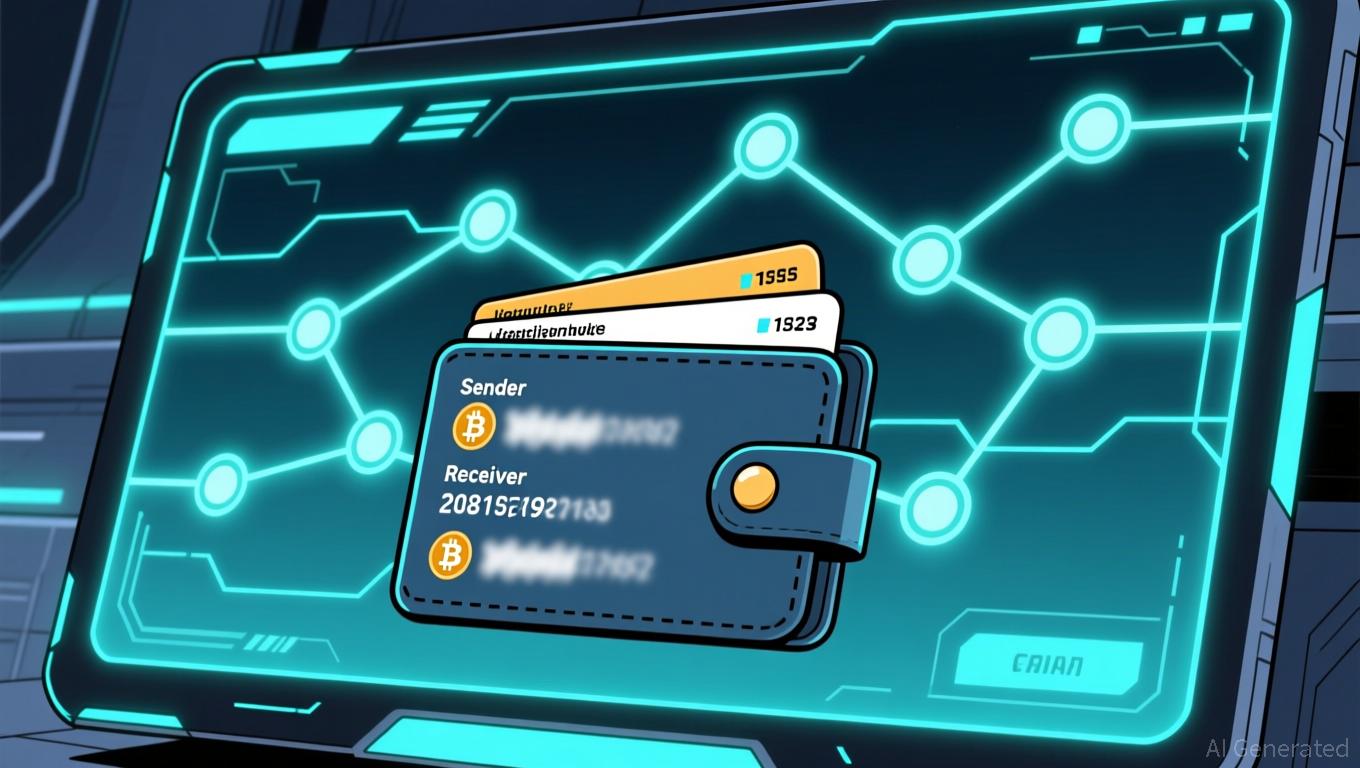Apollo Converts Private Credit into Tokens to Connect Conventional and Digital Finance
- Apollo launches tokenized private credit fund ACRED on Sei blockchain via Securitize, marking first blockchain-based private credit product. - The $112M fund uses Wormhole cross-chain tech for multi-network liquidity, targeting qualified investors with $50K minimums. - Backed by Coinbase and Kraken, ACRED aims to bridge traditional finance with blockchain through digitized credit strategies. - Industry analysts call it a milestone in RWA adoption, leveraging blockchain's transparency to transform alterna

Apollo Global Management, a prominent alternative investment firm overseeing $512 billion in assets, has introduced a tokenized private credit fund on the
The ACRED fund’s tokenization utilizes
Securitize, which is supported by BlackRock and has previously tokenized assets for companies such as KKR and VanEck, has now surpassed $3 billion in tokenized real-world assets. CEO Carlos Domingo pointed out the rising interest in tokenized fixed-income investments, noting that Apollo’s private credit expertise was a key reason for the partnership. The ACRED fund is structured as a non-traded, closed-end interval fund, aiming to provide consistent returns and capital growth with minimal volatility, making it attractive to those seeking diversified blockchain-based investments. For investors native to crypto, Moy described ACRED as a “higher-yield alternative to stablecoins and tokenized treasuries,” offering a way to manage risk in unpredictable markets.
The RWA sector has now exceeded $30 billion in value, propelled by blockchain’s efficiency in settlement and its ability to reduce the need for intermediaries. Apollo’s entry into tokenized private credit signals a broader trend of institutional adoption of blockchain technology, with Securitize planning to introduce more funds on Sei soon. Early backers of ACRED include Coinbase Asset Management and Kraken, highlighting the growing interest in tokenized investment options within the digital asset space. Launching the fund on Sei, a blockchain designed for high-performance DeFi applications, further demonstrates the platform’s increasing importance in institutional finance.
Experts in the field see this as a significant step in merging traditional finance with blockchain technology. By bringing private credit onto the blockchain, Apollo and Securitize are tackling challenges related to liquidity and market access, while taking advantage of blockchain’s transparency and programmable features. As regulations around tokenized assets continue to develop, such projects could lead to wider acceptance of RWAs, changing how investors approach alternative investments. The collaboration also underscores Sei’s rise as a center for institutional blockchain solutions, positioning it alongside established networks like Ethereum and Solana.
Disclaimer: The content of this article solely reflects the author's opinion and does not represent the platform in any capacity. This article is not intended to serve as a reference for making investment decisions.
You may also like
Bitcoin Updates: IMF Warns of Widespread Risks Amid Growing Popularity of Tokenized Finance
- IMF highlights tokenized finance's efficiency gains but warns of systemic risks like smart contract interdependencies and liquidity vulnerabilities. - Upcoming Chainlink ETFs signal growing institutional adoption, with Grayscale and Bitwise advancing regulated exposure to $100B+ oracle network assets. - Analysts predict over 100 new crypto ETFs in six months, but XRP's 18% price drop underscores market volatility despite regulatory approvals. - IMF anticipates regulatory frameworks to address cross-platf

South Korea's Revamped AML Framework: Is It Possible to Balance Security with Innovation?
- South Korea's FSC overhauls AML rules to tighten crypto transaction oversight, targeting transfers under $680 and expanding pre-emptive freezes. - The crackdown follows Upbit's $30M hack linked to North Korea, prompting tax authority raids and blockchain tracking for evasion cases. - AI-powered monitoring flagged 200 suspicious accounts in 2 months, balancing automation with manual audits to detect illicit patterns. - Global enforcement remains fragmented as South Korea pushes stricter VASP registration,

"Privacy or Compliance: The Trust Challenge for Crypto in Payments and DeFi"
- Economist Saifedean Ammous critiques crypto privacy tools like Houdini Pay, arguing centralized compliance models undermine true cryptographic anonymity. - Houdini Pay's "compliant privacy" retains metadata (wallets, IPs) despite hiding onchain addresses, contrasting with zero-knowledge solutions like zkBob. - Balancer's $116M 2025 hack exposed vulnerabilities in audited DeFi protocols, highlighting risks in complex financial primitives like stable pools. - The crypto industry faces a trust dilemma: bala
